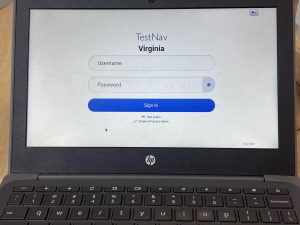Should Menstrual Products be Provided for Free?
March 16, 2023
Between the ages of ten and sixteen, women and girls around the world are introduced to something they must go through once a month for seven to fourteen days until their fifties. A period, and not like the period at the end of this sentence, but a monthly cycle that releases blood through the uterus. This cycle is not a choice. It is something all women must go through once they come of age. So, if having a period is a part of life we can’t control, why are menstrual products so expensive? Everyday, women constantly struggle to afford a necessary hygiene product, so why aren’t they free?
Recently, our own school bathrooms have added machines that dispense tampons and pads for free whenever needed. Through my own experience, I can say that they have benefited me greatly, especially due to the unpredictability of these cycles. I’ve seen it benefit so many others as well so why doesn’t every public restroom provide this?
“I do not think they are as easily accessible as they should be. Some areas do take into consideration that women may need menstrual products, but if you’re out in a busy area you rarely see them being marketed as readily available,” said Roi Dela Cruz, a senior in the GSWLA academy.
Some may say that the tax on menstrual products provides greater income for the country, but is it really okay to build capital off of a natural human function? Many countries have already been working towards free menstrual products for all or abolishing the tax on the products to make them more affordable.
As of August 15, 2022, Scotland became the first country to protect the right to access free period products. The Scottish government had already begun providing free period products in schools in 2020 and now they have tackled the issue on an even bigger scale. Scotland has had a global impact on period poverty and has even influenced other countries like South Korea, New Zealand, Canada, and the United States.
Due to a company called Aunt Flo, Canada now requires that all buildings provide free menstrual products in their restrooms. The United States is also implementing the same but is facing struggles getting this to apply in all fifty states. So far only seventeen states require free menstrual products in restrooms. They are next in line when it comes to passing legislation for menstrual product equality in all states considering many other countries have already done so.
“Yes, period products should be free because every person with a uterus has to go through up to a week of bleeding. Many of which have heavy flows and with how expensive they are now it is insane that some people can’t afford those hygienic products and are forced to resort to less safe/clean methods,” said Reese Joyce Olazo, senior in the GSWLA academy.
Without menstrual products, women and girls have a higher risk of infection because they don’t have clean, safe, and proper products. Although these products are advertised everywhere, period poverty is still a big problem. Period poverty describes the struggle many low-income females face while trying to afford menstrual products.
Schools around the world are working hard to provide free and accessible menstrual products for all. Many factors are being taken into consideration to have these products labeled as medical necessities rather than luxury items. Students at Tallwood High School have already benefited greatly by having access to products freely. schools need to take the right step to be better for their students.











